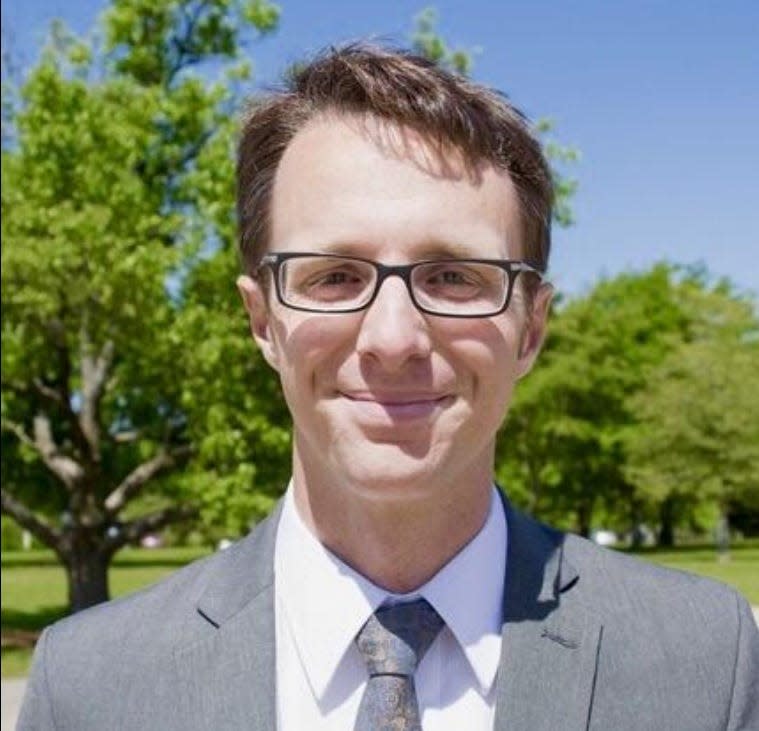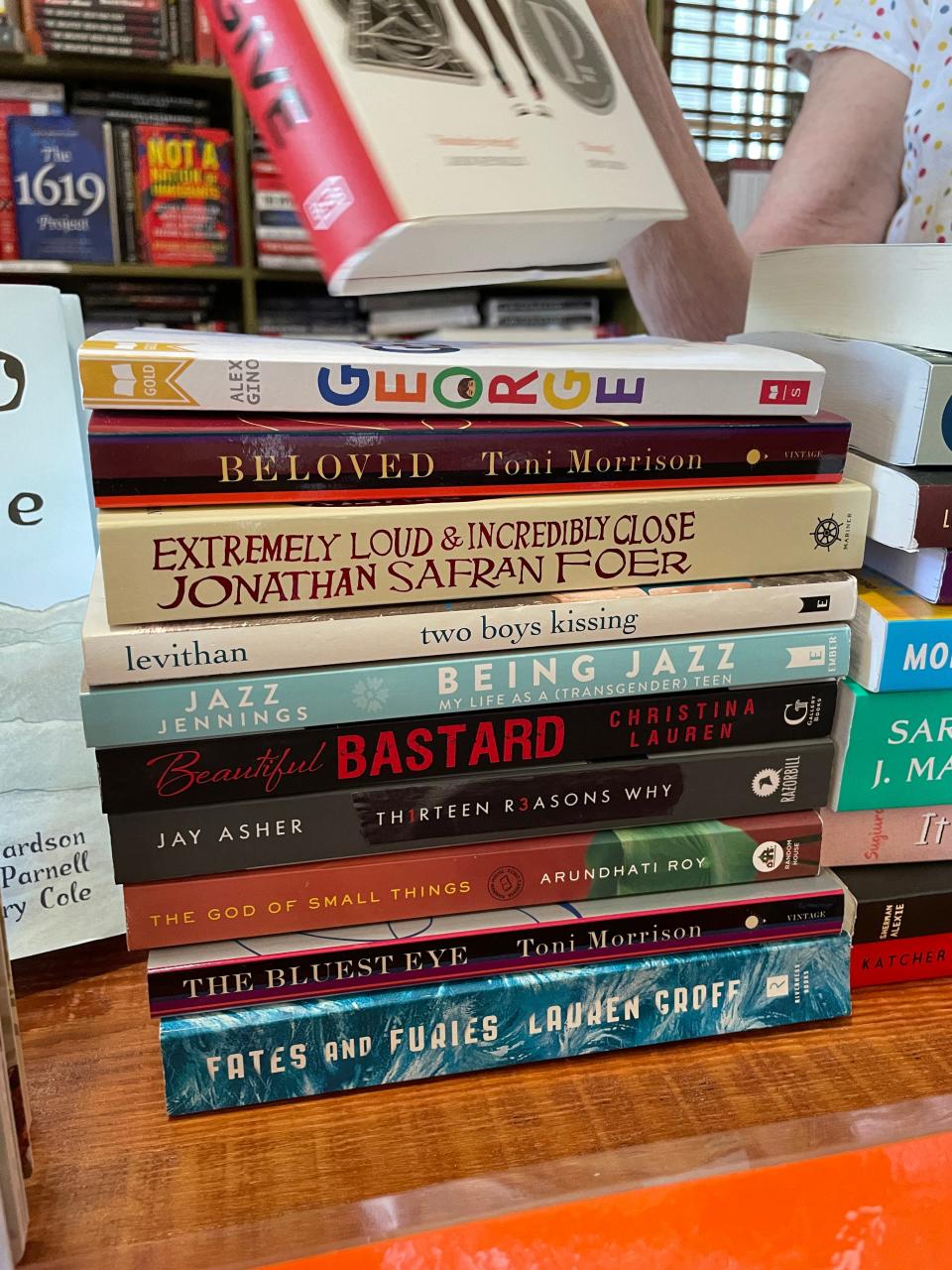Fayetteville professor: Book bans and cancel culture are both in the news. But only one of them violates free speech
What media bubble do you live in? The answer may determine what kind of attack you think free speech is under.
If you watch Fox News (or former President Trump’s favorite, One America News Network), you will have heard that our freedoms are straining under the weight of “cancel culture.” On the other end of the dial, liberal viewers hear of bans on books, and now, on whole topics of conversation, in schools across America.
But to look at cancel culture and book bans through the lens of history is to see that only one of them actually threatens free speech. Book banning undermines long-established American values, while canceling is a mere tempest in a teapot.

Let’s start with canceling, in which an institution dissociates itself from someone voicing a problematic idea, or everyday people boycott or shun public figures because of something they said or did. The woman known as the “Central Park Karen” lost her job after racially antagonizing a black bird-watcher; Twitter and Facebook exiled Donald Trump after deeming that his posts on January 6, 2021, incited violence; and celebrities like Louis CK and JK Rowling have earned opprobrium for bad behavior or intolerant language.
More: Patrick W. O’Neil: Book-banning surge in America has authoritarian underpinning
Do these examples violate our free speech? Not so much. The First Amendment says, “Congress shall make no law . . . . abridging the freedom of speech, or of the press.” The key words here are “Congress” and “law.” The Constitution protects us from the government — originally the federal government, and later, states, too — restricting our speech.
But just because we shouldn’t go to jail for our words doesn’t mean we might not suffer consequences for them. And thank goodness! Do you really want the government telling businesses they can’t fire someone who embarrassed them, or who gives them a bad name?
More: Training helps minority communities weed out COVID-19 disinformation
When Twitter banned Donald Trump, that was a business decision, weighing the financial costs against the financial benefits of keeping him on their platform. Unless Twitter is deemed a public utility, it’s their call. And as tempting as it is to suggest that Trump was silenced, that’s obviously not true: He’s got Fox and Friends on speed dial. “Canceling” him violates precisely none of his Constitutional freedoms.

As for censuring unpopular views, it’s as American as homespun cloth. I hope mob action makes you uncomfortable, but what’s more American than protesting bad behavior? The nation was founded on it. The tea boycott in the American Revolution was an attempt by concerned citizens to cancel — or at least disrupt— the East India Company. In the same era, patriotic ladies threw their weight behind the Revolution by snubbing British officials. In both cases, America’s founders used economic and social power to punish bad actors. You can draw a straight line from them to the abolitionists who pressured the slave system by refusing to buy its products, and to the boycotts of the Civil Rights Movement.
On the other hand, the exact reason cancel culture is merely irritating is why bans on books are dangerous. Rather than businesses or individuals making choices that you or I might disapprove of, these bans come down from government itself. That’s what the founders were trying to protect against when they wrote the First Amendment. And that’s what the latest example, Florida’s Parental Rights in Education Act (commonly known as the “Don’t Say Gay” bill), is doing — punishing teachers for discussing matters of race or sexual orientation with their students.
One can imagine why people might favor some prohibitions: kids of a certain age aren’t ready for explicit material. (I would, though, love to ask parents who storm school board meetings whether they’ve shown their kids Deadpool or Joker: if they have, nothing in the recently banned “Dear Martin” by Nic Stone should trouble them.)
But laws like this block out perspectives that students don’t get at home. The law’s justification for banning a book is that parents have a right to determine what their child sees and hears. But democracy demands the opposite. Democracy’s fundamental premise is that you have to negotiate with, and be willing to lose to, your political opponents. You think America is too polarized? The solution is not to raise “snowflakes” who never look beyond themselves, but to understand better where other people are coming from.
Here’s what the Supreme Court said about debate in a democracy: it “should be uninhibited, robust, and wide-open.”* The founders, the Court rightly said, “believed . . . that it is hazardous to discourage thought, hope and imagination; … that the path of safety lies in the opportunity to discuss freely supposed grievances and proposed remedies; and that the fitting remedy for evil counsels is good ones.”
They also argued that it is schools’ job to foster that robust, open citizenship. In Brown versus Board of Education, the Court called public education “the very foundation of good citizenship. . . . [I]t is a principal instrument in awakening the child to cultural values, in preparing him for later professional training, and in helping him to adjust normally to his environment.”
School, in other words, is where we train students to think past themselves, to adjust to a society in which not everyone will look or act or think like them. It’s where we give people access to what they can’t get at home, be it calculus or controversy.
Huge savings: $1 for 6 months
Subscribe today to support local journalism and enjoy unlimited digital access including videos, apps, sports news, and more. Special introductory offer for new subscribers only.
At the same time, it needn’t be a place where reading something means you’ll agree with it. Training teachers to help students approach material critically is harder than banning books, but more worthwhile and more effective.
Get out of your bubble. America is complicated, and the only way to deal responsibly with that complexity is to prepare students to meet it head on.
Patrick W. O’Neil is chair of the History Department at Methodist University.
*New York Times v. Sullivan, Quoting Whitney v. California
This article originally appeared on The Fayetteville Observer: Fayetteville professor: Book bans and cancel culture are both in the news. But only one of them violates free speech

